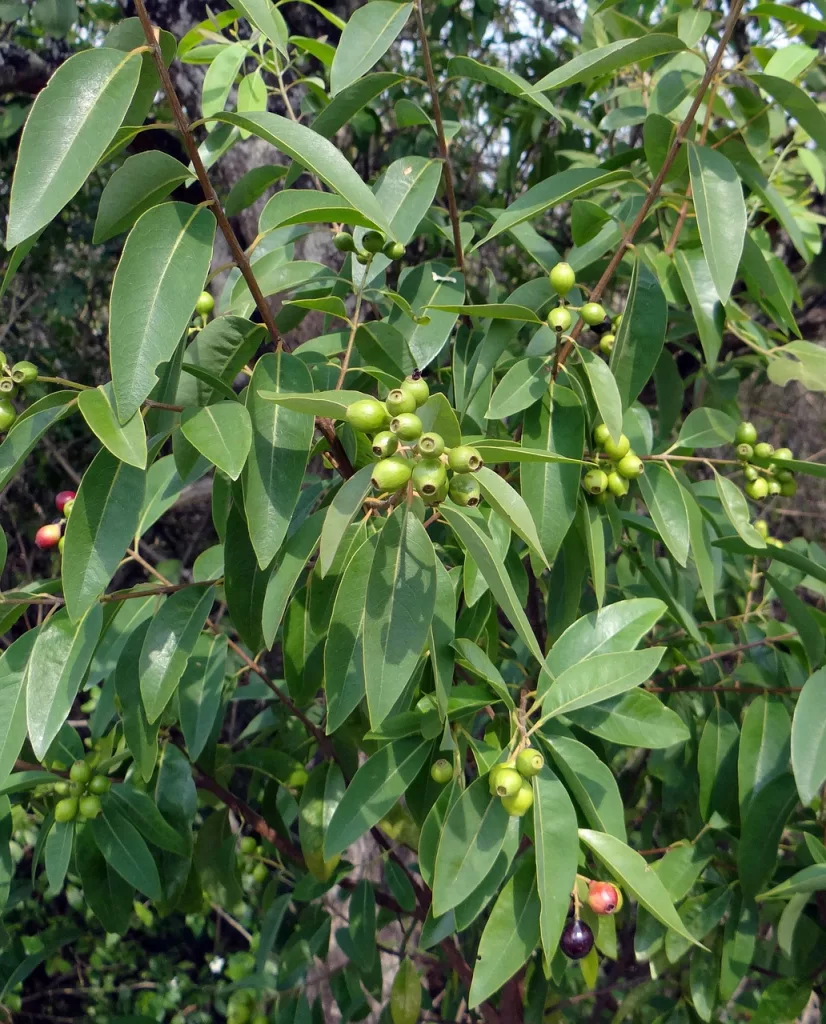Sandalwood, commonly known as Santalum album Linn, is a tiny tree that thrives in tropical countries, most notably India. The hue of the wood varies based on the age and type of tree. The opposing leaves are oval or lanceolate in form and smooth on both sides. Sandalwood flowers are relatively small, with multiple racemes of various hues. It has a heavenly smell. In India, the government claims ownership of all sandalwood trees, and illegal and indiscriminate export is prohibited.
Medicinal Benefits of Sandalwood
1. It relaxes the nervous system and cools the body.
2. It is also a disinfectant.
3. Encourages the flow of urine.
4. Cleans the bronchial passages of mucus secretions.
5. Tonic for the heart that works.
6. Treatment for bladder problems, liver congestion, and excessive thirst.
7. Bronchitis that is chronic.
8. For the treatment of eruptive skin conditions, fever, and irritated swellings.
9. To alleviate itching and treat acne and other skin conditions.
Ways to Use Sandalwood
1. A few drops of the wood extract are used in dosages of 3 to 6mL in 1 liter of water for chronic bronchitis. One or two cups per day are recommended.
2. 5 to 15 drops of extracted oil can be used three times per day to treat the first six diseases indicated under therapeutic use.
3. External application of Santalum, either as a paste or an infusion, is beneficial for eruptive skin conditions.
4. In cases of headaches and fever, apply to the temples. It’s also used to treat inflammatory swellings.
5. Sandalwood oil is used to treat scabies, acne, and other skin conditions.
Sandalwood’s Benefits for Skin
On the face, sandalwood powder has a wide variety of applications. In addition to assisting in the development of clear skin, sandalwood is useful in assisting in the elimination of persistent skin-related problems. Let me explain how it works:
Anti-aging
Sandalwood contains a high concentration of antioxidants, which stop the drooping of the skin and the subsequent creation of wrinkles. Additionally, it is able to protect the skin from the damage that is brought on by the presence of free radicals in the skin. It is revered in Ayurveda for its anti-aging characteristics, which include the ability to make skin tighter while also reversing the damage caused by sun exposure. Isn’t that simply incredible?
Helps prevent acne
Sandalwood can even be used to stop those awful zits from appearing on your skin so that you don’t have to deal with them. Because sandalwood contains antiseptic characteristics, it inhibits the growth of bacteria on the skin. As a result, the treatment of acne, boils, and ulcers, as well as the prevention of their worsening, is enhanced by the use of sandalwood.
It eliminates the scars
It is well known that sandalwood may cure the tissues in your skin. This therapeutic property assists in removing scars from wounds, as well as blemishes, dark spots, and eczema from the skin. Sandalwood powder is another option for skin whitening because it can eliminate blemishes and give you an even tone by removing impurities from the skin. To ensure that future brides have a faultless appearance on their wedding day, it is recommended that sandalwood be applied to the face.
Calms the surface of the skin
Because of its high concentration of anti-inflammatory characteristics, sandalwood is an excellent treatment option for sunburns and rashes that occur on the skin. In addition to relieving skin irritation and itching brought on by illnesses, bug bites, or allergic responses to products, it also helps prevent breakouts and acne.
Anti-tanning
If you don’t get proper treatment right away, the results of a tan can stick around for a long time. When applied to the affected areas, rubbing sandalwood oil into the skin or applying its paste will help eliminate a suntan more gradually while also reducing the redness and burning caused by excessive exposure to the sun’s rays.








